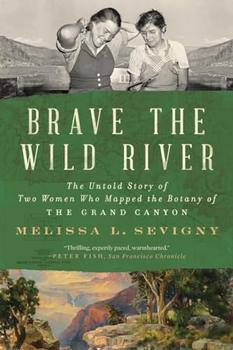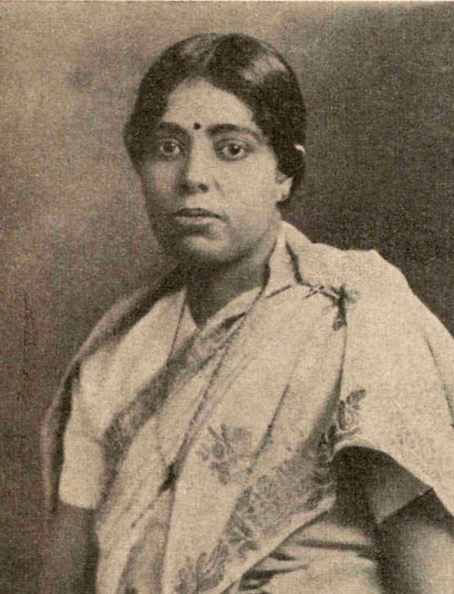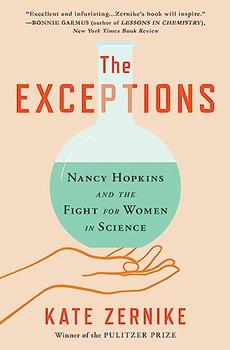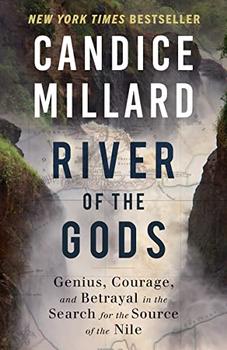Summary | Excerpt | Reviews | Beyond the book | Read-Alikes | Genres & Themes | Author Bio
The Untold Story of Two Women Who Mapped the Botany of the Grand Canyon

Critics' Opinion:
Readers' Opinion:
First Published:
May 2023, 304 pages
Paperback:
May 14, 2024, 304 pages
 Book Reviewed by:
Book Reviewed by:
Callum McLaughlin
Buy This Book
The riveting tale of two pioneering botanists and their historic boat trip down the Colorado River and through the Grand Canyon.
In the summer of 1938, botanists Elzada Clover and Lois Jotter set off to run the Colorado River, accompanied by an ambitious and entrepreneurial expedition leader, a zoologist, and two amateur boatmen. With its churning waters and treacherous boulders, the Colorado was famed as the most dangerous river in the world. Journalists and veteran river runners boldly proclaimed that the motley crew would never make it out alive. But for Clover and Jotter, the expedition held a tantalizing appeal: no one had yet surveyed the plant life of the Grand Canyon, and they were determined to be the first.
Through the vibrant letters and diaries of the two women, science journalist Melissa L. Sevigny traces their daring forty-three-day journey down the river, during which they meticulously cataloged the thorny plants that thrived in the Grand Canyon's secret nooks and crannies. Along the way, they chased a runaway boat, ran the river's most fearsome rapids, and turned the harshest critic of female river runners into an ally. Clover and Jotter's plant list, including four new cactus species, would one day become vital for efforts to protect and restore the river ecosystem.
Brave the Wild River is a spellbinding adventure of two women who risked their lives to make an unprecedented botanical survey of a defining landscape in the American West, at a time when human influences had begun to change it forever.
Prologue
Stranded
The night was full of noises. The driftwood campfire snapped and spluttered, casting a circle of light on the river-rippled sand. Beyond, darkness pressed. Somewhere in the undergrowth a small creature rustled and scratched. The willows fringing the sandbar made a susurration as water rushed round their roots. Over, under, through it all, ran the Colorado River.
It was nothing like the sultry summer nights she had spent as a girl in Michigan, with a chorus of crickets and a percussion section of frogs. Michigan was a world of water, hemmed by lakes and stitched with rivers. Here, in the wilds of Utah, stone and sky prevailed. The high faces of the canyon walls boxed her in. The river, sloshing the shore, resounded as loud as an ocean.
Lois Jotter was alone. She shouldn't have been there—that's what people would say. Certainly not separated from her companions in the depths of Cataract Canyon, the place everyone called "the graveyard of the Colorado River." ...
Never dry, the account reads like the tale of adventure that it is, reflecting the danger and exhilaration of the journey without resorting to melodrama. Aside from a later chapter that feels like a rushed summary of the women's lives post-expedition, it's well paced to maintain interest. Clover and Jotter wrote of their shared fear that their scientific efforts would be lost to history, their role in the mission tokenized and careers diminished due to their gender. Sevigny's account strives to ensure this won't be the case. She gives due reverence to her subjects' exciting, pioneering lives without losing focus on the enduring relevance of their work as a benchmark in botanical research...continued
Full Review
 (633 words)
(633 words)
(Reviewed by Callum McLaughlin).
 Publishers Weekly (starred review)
[A] marvelous history…Drawing on Clover and Jotter's journals and letters, Sevigny recreates their expedition in novelistic detail, producing a narrative as propulsive as the current of the Colorado. Readers will be swept away.
Publishers Weekly (starred review)
[A] marvelous history…Drawing on Clover and Jotter's journals and letters, Sevigny recreates their expedition in novelistic detail, producing a narrative as propulsive as the current of the Colorado. Readers will be swept away. Ash Davidson, author of Damnation Spring
Whip-smart, funny, meticulously researched, and beautifully written, Brave the Wild River is required reading for anyone interested in the Grand Canyon, river running, or the ingenuity of plants. It examines the challenges women in science faced in the 1930s―and still face today―but above all it's a story about what it means to risk everything, to follow your heart into the great unknown.
Ash Davidson, author of Damnation Spring
Whip-smart, funny, meticulously researched, and beautifully written, Brave the Wild River is required reading for anyone interested in the Grand Canyon, river running, or the ingenuity of plants. It examines the challenges women in science faced in the 1930s―and still face today―but above all it's a story about what it means to risk everything, to follow your heart into the great unknown. Kevin Fedarko, author of The Emerald Mile
Melissa L. Sevigny unfurls one of the finest river stories of the Grand Canyon while presenting a long overdue, richly deserved, and beautifully written tribute to a pair of legendary botanists who peeled back the petals of a mysterious, intoxicating landscape and made it blossom with new knowledge and wonder.
Kevin Fedarko, author of The Emerald Mile
Melissa L. Sevigny unfurls one of the finest river stories of the Grand Canyon while presenting a long overdue, richly deserved, and beautifully written tribute to a pair of legendary botanists who peeled back the petals of a mysterious, intoxicating landscape and made it blossom with new knowledge and wonder. Nathalia Holt, best-selling author of Rise of the Rocket Girls
Brave the Wild River is everything a book should be, at once a biography, a thriller, and a vivid piece of science writing. In Melissa L. Sevigny's breathtaking prose, the legendary Grand Canyon comes alive in honey mesquite, riparian forests, and desert blooms. Sevigny defines the wild as a 'place that changes us,' and she has written a book that is destined to permanently alter the way you see the world.
Nathalia Holt, best-selling author of Rise of the Rocket Girls
Brave the Wild River is everything a book should be, at once a biography, a thriller, and a vivid piece of science writing. In Melissa L. Sevigny's breathtaking prose, the legendary Grand Canyon comes alive in honey mesquite, riparian forests, and desert blooms. Sevigny defines the wild as a 'place that changes us,' and she has written a book that is destined to permanently alter the way you see the world. Throughout their careers, botanists Elzada Clover and Lois Jotter helped to break barriers for women in their field. Beyond this, they became the first people in all of Western science to officially catalogue the plant life growing within the Grand Canyon. Despite their obvious expertise, much of the press coverage of their work at the time focused on the perceived novelty that they were women. This led Clover and Jotter to fear their scientific contributions would be overlooked because of their gender.
Throughout their careers, botanists Elzada Clover and Lois Jotter helped to break barriers for women in their field. Beyond this, they became the first people in all of Western science to officially catalogue the plant life growing within the Grand Canyon. Despite their obvious expertise, much of the press coverage of their work at the time focused on the perceived novelty that they were women. This led Clover and Jotter to fear their scientific contributions would be overlooked because of their gender.
In Brave the Wild River, author Melissa L. Sevigny combats this prospect by immortalizing the botanists' journey along the Colorado River. In the same spirit of celebrating the groundbreaking contributions made by women in botany, here is...

If you liked Brave the Wild River, try these:

by Kate Zernike
Published 2024
From the Pulitzer Prize–winning journalist who broke the story, the inspiring account of the sixteen female scientists who forced MIT to publicly admit it had been discriminating against its female faculty for years—sparking a nationwide reckoning with the pervasive sexism in science.

by Candice Millard
Published 2023
The harrowing story of one of the great feats of exploration of all time and its complicated legacy - from the New York Times bestselling author of River of Doubt and Destiny of the Republic.





The House on Biscayne Bay
by Chanel Cleeton
As death stalks a gothic mansion in Miami, the lives of two women intertwine as the past and present collide.

The Flower Sisters
by Michelle Collins Anderson
From the new Fannie Flagg of the Ozarks, a richly-woven story of family, forgiveness, and reinvention.

The Funeral Cryer by Wenyan Lu
Debut novelist Wenyan Lu brings us this witty yet profound story about one woman's midlife reawakening in contemporary rural China.
Your guide toexceptional books
BookBrowse seeks out and recommends the best in contemporary fiction and nonfiction—books that not only engage and entertain but also deepen our understanding of ourselves and the world around us.